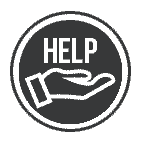Over 150 animal protection and environmental NGOs from across the world, together Dr. Jane Goodall, are calling on global leaders meeting at a special session of the United Nations General Assembly (UNGA) on the coronavirus pandemic, taking place 3-4 December, to address the wellbeing of animals in COVID-19 recovery and financing efforts, as well as policies intended to “build forward better”.
As world leaders meet to consider the international cooperation required to deal with COVID-19, animal protection and environmental groups from Africa, Asia, Oceania, the Americas and Europe, included OIPA International, have signed a new joint-MANIFESTO outlining actions required to transform farming systems, shift food consumption habits, end the unnecessary exploitation of wildlife, increase vaccine development efficiencies and ensure animal wellbeing.
Reports that the COVID-19 crisis likely arose from the exploitation of animals, as well as recent revelations about potential COVID-19 variants emerging from mink farms, has drawn greater attention to how human uses of animals can increase the risk of future pandemics. In July, a study released by the UN Environment Programme and the International Livestock Research Institute on preventing future pandemic identified the increase in consumption of animal products, intensification of animal production systems, and wildlife exploitation as primary drivers of pandemic risk.
To reduce the future risk of pandemics the manifesto implores global decision-makers to take concrete steps to incorporate policies linking the health of animals, the environment and humans into COVID-19 policy and financing to ensure a resilient, sustainable and humane future.
In particular, the manifesto askes for:
- The inclusion of a One Health and One Welfare approach not only in post-COVID recovery and financing, but throughout policymaking and implementation.
- Recovery policies and financing to end support for industrial animal production, as this is clearly linked to increasing risks of zoonotic emergence. Instead investments should consider alternatives to animal-based proteins and more sustainable regenerative and agro-ecological production practices.
- Ambitious and visionary leadership for a transition towards plant-rich diets and away from industrial animal production and the commercial wildlife trade.
- Actions to discourage the financing of industrial animal agriculture, wildlife trade, land conversion, and infrastructure developments that fragment and destroy natural habitats.
It’s time for the UN to seriously include animal welfare and protection on its agenda. We must reconsider the approach and relation we all have with nature and the way we treat animals and environment to safeguard the future of our planet!
Read the Manifesto: COVID-19 Manifesto












